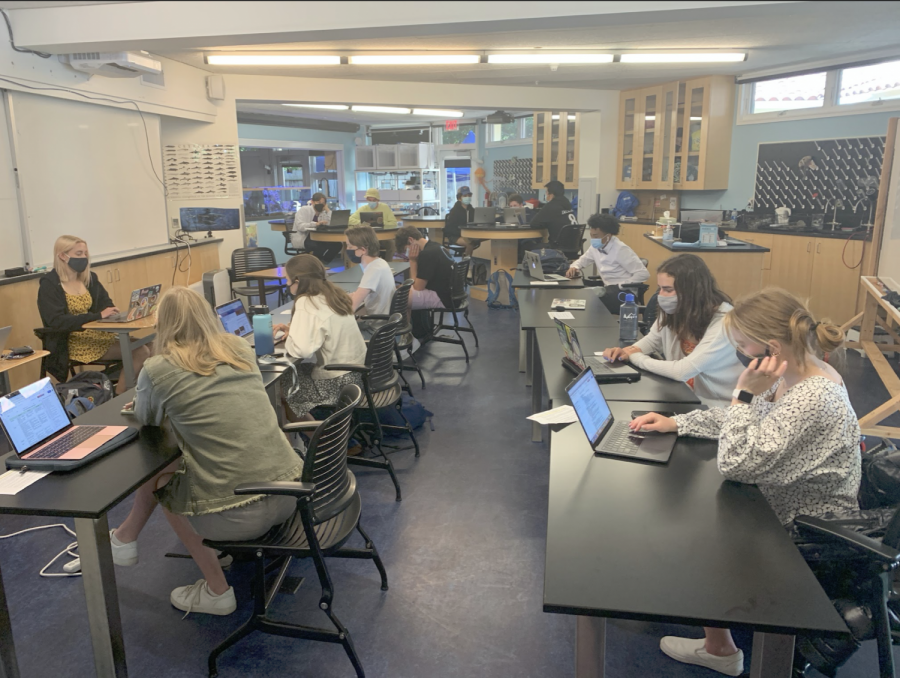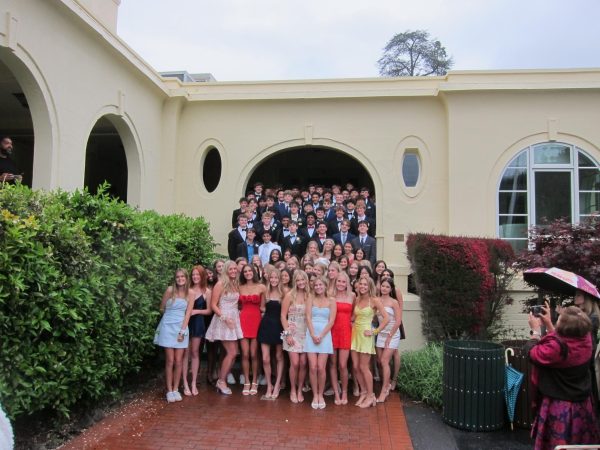Objectives-based grading: What is it, and what is its future at Branson
May 8, 2021
Brought to school two years ago, objectives-based grading, also known as OBG, has grown at Branson as a grading system to challenge the traditional grading system used in many schools throughout the United States.
Spearheaded by science teachers Karl Schmidt and Maggie Molter, OBG was brought to Branson in late 2018. It aims for students to think about learning and mastering a skill in their class instead of worrying about points and a letter grade. The system has a four-tiered scale: beginning, developing, proficient and advanced. If all learning skills are proficient, a student’s grade would be translated to an A.
“Three years ago, Karl and I had the first objective based grading pilot at Branson,” Molter said. “The grading system started with two sections of ninth-grade physics. The next year it spread to all sections of ninth-grade physics and English and also Algebra I. This OBG has grown as the grading system in my chemistry class and a couple of other math classes.”
The pilot program initially started with a 1-4 system of grading. A “4” being the best you could get. This model is based off of the beginner-advanced system, except that it harnesses numbers instead. This model confused students, as a 3 would translate to an A, but it would also translate to a 3/4, which is a 75 percent.
Schmidt described the early implementation of the 1-4 system.
“In the pilot program we initially started out with a 1, 2, 3 system. But people got confused because if a 3 translates to an A but a is 3/4, that’s 75%, which is a C. It left people more confused about grading and numbers. So one the main things we learned was going verbally and moving away from numbers and math, really makes it more clear,” he said in an interview.
Giles Scott, chair of the English department, said that students seem more successful overall as writers and in achieving the learning goals set out at the beginning of the year when using OBG. He also noted that he saw a decrease in students worrying about their grades.
“OBG is absolutely better for grading, no question in my mind. I think it has certain limitations, but despite those limitations, it is way better than traditional grading,” he said. “Traditional grading puts students in a place where they need to think about the end product, the award attached to their work, as opposed to the work itself.”
The main reason why OBG hasn’t progressed into more classes is because of the lack of community debate on the topic. Director of Teaching and Learning Jeff Symonds said that OBG needs more time before being fully implemented.
“OBG has a presence but we need to figure out the size and scope of the presence and collect some data, before we implement it. I think that is a conversation we are in the process of having and we need to continue to have.”
In an interview, Molter highlighted the support from faculty and students. She also noted the next steps the community needs to take to implement the new system and further equitable grading.
“I would love for OBG to have a permanent place in Branson … OBG needs more community discussion but it has a lot of community interest from teachers, a lot of support from students who have had good experiences. So it’s up to the community to continue to talk with each other and what the next steps are going to look like,” she said.




